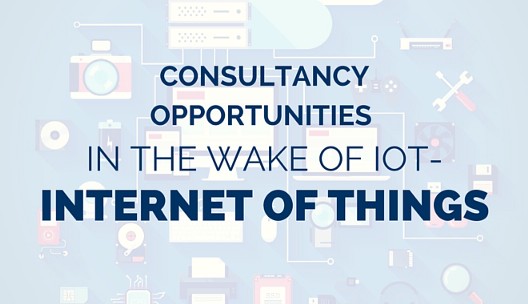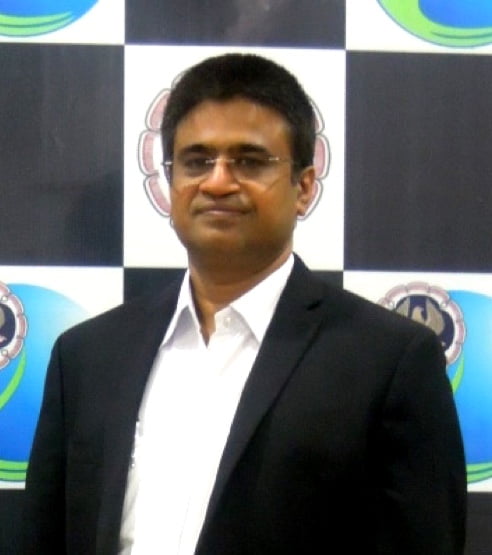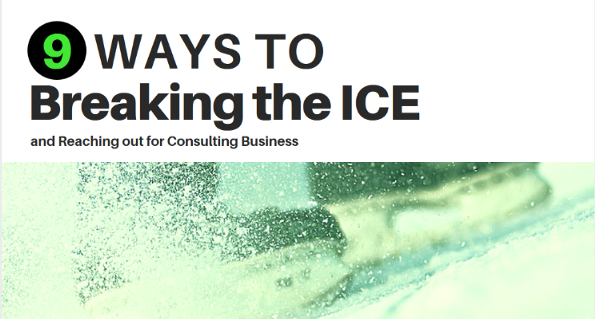There has been a lot of buzz about Internet of things for sometime now. In case you missed it, the term “internet of things” refers to nexus of electronic devices connected to the Internet using embedded intelligence and data collecting sensors. IoT devices include everything from home appliances and wearable accessories to automobiles, jet engines, machinery components and medical devices, etc.
Smart Devices are not a futuristic thing anymore. All everyday common gadgets are now going to start providing data which can be useful to improve the business efficiency. More and more devices are becoming embedded with sensors and computer processors and they can now be controlled from any remote place. This means there will be more information collected from different locations which will help businesses to improve efficiency, introduce innovations in product development and enhance customer experience. This is one niche area where there is going to be great scope for Business Consultants.
Every business in the early stage of adopting IoT solutions, will seek constant support from consultants. They can help businesses take advantage of this unexplored opportunity, before competitors turn up the heat. Below are some points consultants should consider when advising a client to use IoT for their business:
1. Big Data Management:
IBM reports that around 2.5 quintillion bytes of data is generated every day and 90% of the data has been generated in the last two years alone. Now with arrival of IoT across different verticals, the size of data is estimated to multiply by huge numbers. In light of this, Consultants need to suggest clients to upgrade their technology and data centers across the organization.
The ever increasing data generated by IoT devices will need faster networks, extensive storage volume and an improved computing capacity. Consultants are required to make sure their client’s IoT infrastructure is equipped with latest technology and advanced tools, in order to handle the constant flow of information.
2. Data Protection and Network Security:
With IoT taking over the entire range of electronic devices, data security seems to be the primary concern for every company. There are explicitly defined data protection laws around the world, regulating and limiting the possession & transfer of data. However, when it comes to machines collecting sensitive information incessantly, it becomes a greater challenge for companies to protect the enormous amounts of confidential statistics.
Before security breach and data loss are reported, consultants should hold a meeting with client’s security specialists and confirm that all the IoT devices are updated with security patches. Insecure authentication, lack of transport encryption and incomplete security configuration are some critical issues that pose a threat to organization’s privacy and security. Therefore, Consultants are advised to follow a comprehensive approach when advising a client on IoT.
3. PaaS for IoT Analytics:
Internet of Things analytics are expected to provide the business leaders and managers with deep insights about different phases of business operations. However, the sensor data continuously generated by IoT devices will require a large scale storage capacity and real time data processing infrastructure, which is quite an expensive solution.
Consultants can instead suggest their clients to shift to an extensible and cost effective PaaS analytics platform that provides real time data processing with secure cloud server storage. Cloud based analytics platforms are safe to store all the sensitive sensor values where they cannot be manipulated.
4. Integration with existing systems:
Another important advice that consultants should give to their clients is about integrating IoT infrastructure with their existing systems. For example, production plants equipped with sensors can be helpful in tracking each phase of the production line. Data generated by these sensors gets accumulated and processed in real time through IoT analytics platform. This will help businesses to locate the bottlenecks in manufacturing units that are not easily identifiable.
The upcoming range of Cloud technologies is expected to be optimized for high traffic environment. It will enable businesses to not only handle data generated by different IoT devices but also analyze it in real time.
5. Marketing Automation:
Experts believe that IoT is going to transform the marketing landscape in the years to come. Before competitors start taking advantage of this opportunity, consultants are required to take proactive steps and help their clients gain significant market share.
IoT equipped applications allow businesses to know consumers’ location, their buying habits, preferences and purchase history in real time. They can classify the customers based on their tastes and preferences and customize their marketing efforts with help of this data. Moreover, with real time interactions, marketers will be better able to serve their customers’ needs and optimize their content for targeted users.
Consultants can convince business owners to change their approach and adapt to the hyper connected world, in order to maximize their returns from IoT. Businesses that shift quickly and start using IoT across different departments within their organization will be able to outperform their competitors in the near future. Thus, consultants are now required to keep tabs on the latest developments in IoT, in order to answer the ever occurring issues of their clients.



